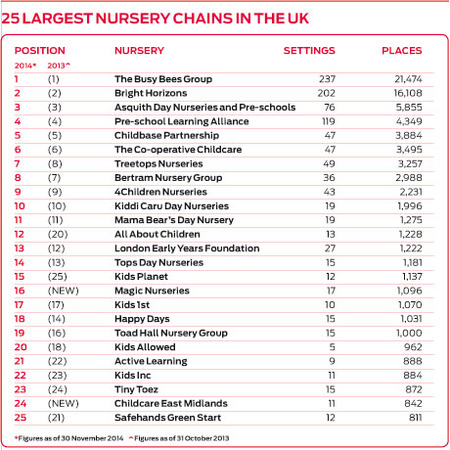year, and in our extensive directory too. Catherine Gaunt analyses the
latest moves in both size and quality of the chains.

The positions of the largest nursery groups in our annual table of the biggest chains in the UK reflect the trend in recent years of the corporatisation of the early years sector - the continuing rise of the big chains.

The ten biggest players still dominate the top half of the table, their positions largely unchanged from last year. During the past 12 months many of them have opened new settings or increased the number of places they offer at their existing ones.
These findings mirror those of Laing & Buisson's Children's Nurseries UK Market Report 2014, published last week, which highlights the first significant rise in the number of nurseries since the mid-2000s.
Register now to continue reading
Thank you for visiting Nursery World and making use of our archive of more than 35,000 expert features, subject guides, case studies and policy updates. Why not register today and enjoy the following great benefits:
What's included
-
Free access to 4 subscriber-only articles per month
-
Unlimited access to news and opinion
-
Email newsletter providing activity ideas, best practice and breaking news
Already have an account? Sign in here
